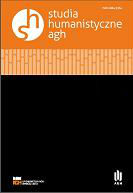URBAN SPRAWL VERSUS THE COMPACT CITY IN THE CONTEXT OF SPATIAL POLICY
URBAN SPRAWL VERSUS THE COMPACT CITY IN THE CONTEXT OF SPATIAL POLICY
Author(s): Krzysztof Rogatka, Marta SyllaSubject(s): Philosophy, Social Sciences, Sociology, Rural and urban sociology
Published by: Wydawnictwa AGH
Keywords: city; peri-urban area; urban sprawl; compact city; spatial policy
Summary/Abstract: The aim of this article is to present the multidimensional phenomenon of urban sprawl in relation to the concept of the compact city and spatial policy. Intensive urbanization, which leads to spatial, social, environmental and cultural changes, has been observed in Polish cities and peri-urban areas for many years. The authors distinguish between the negative aspects of urban sprawl and the positive implications of the compact city. Spatial planning should be considered as a tool to manage urban and rural areas. In Poland the spatial planning system consists of three levels: national, regional, and local. It is assumed that spatial policy that contributes to improving cities according to the concept of the compact city can lead to a formation of sustainable urban structure in which society, economy, nature and cultural heritage harmoniously coexist. The case study of Nowe Zerniki estate in Wroclaw is analyzed. Nowe Zerniki exempli es the concept of the compact city and the brown eld investment ideas that can contribute to the transformation into a sustainable city. It also provides a model for creating modern urban development in accordance with the current architectural, urban, environmental and social requirements.
Journal: Studia Humanistyczne AGH
- Issue Year: 14/2015
- Issue No: 4
- Page Range: 15-25
- Page Count: 11
- Language: English

